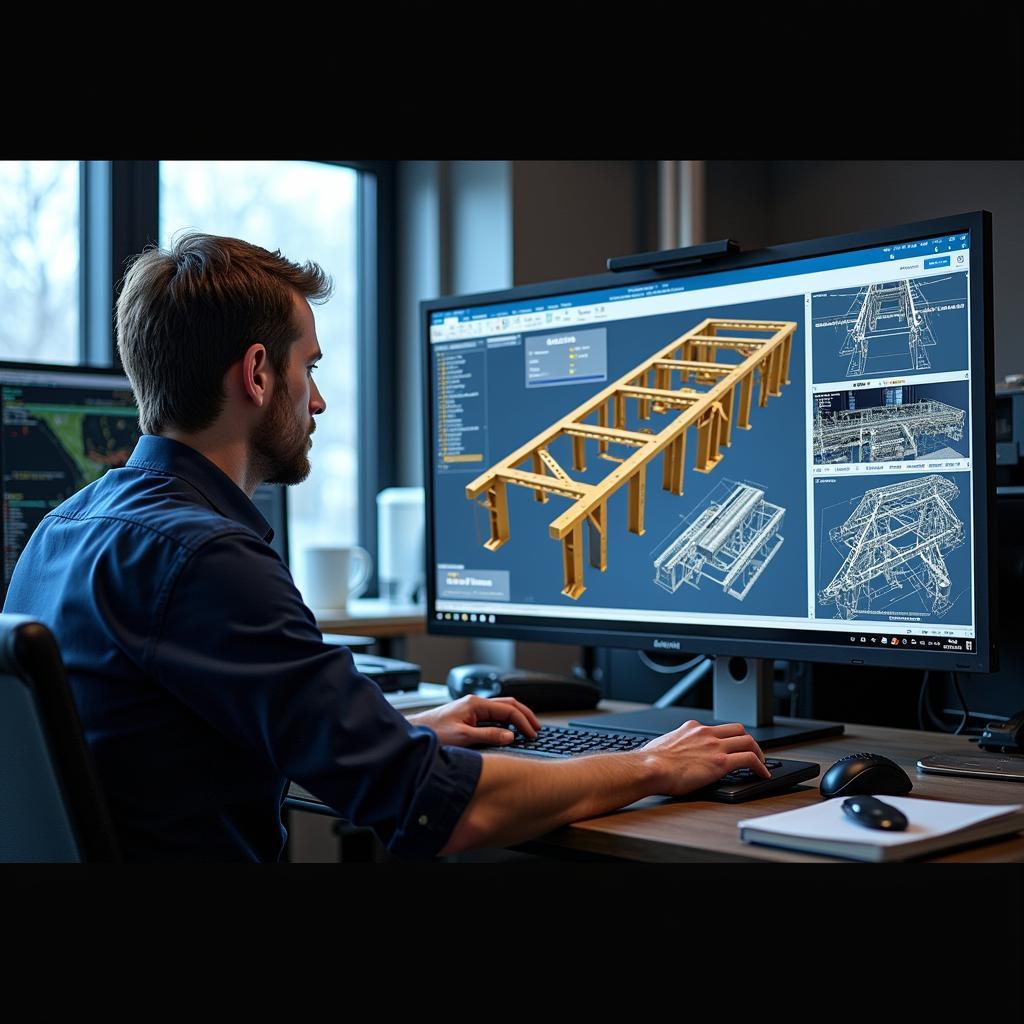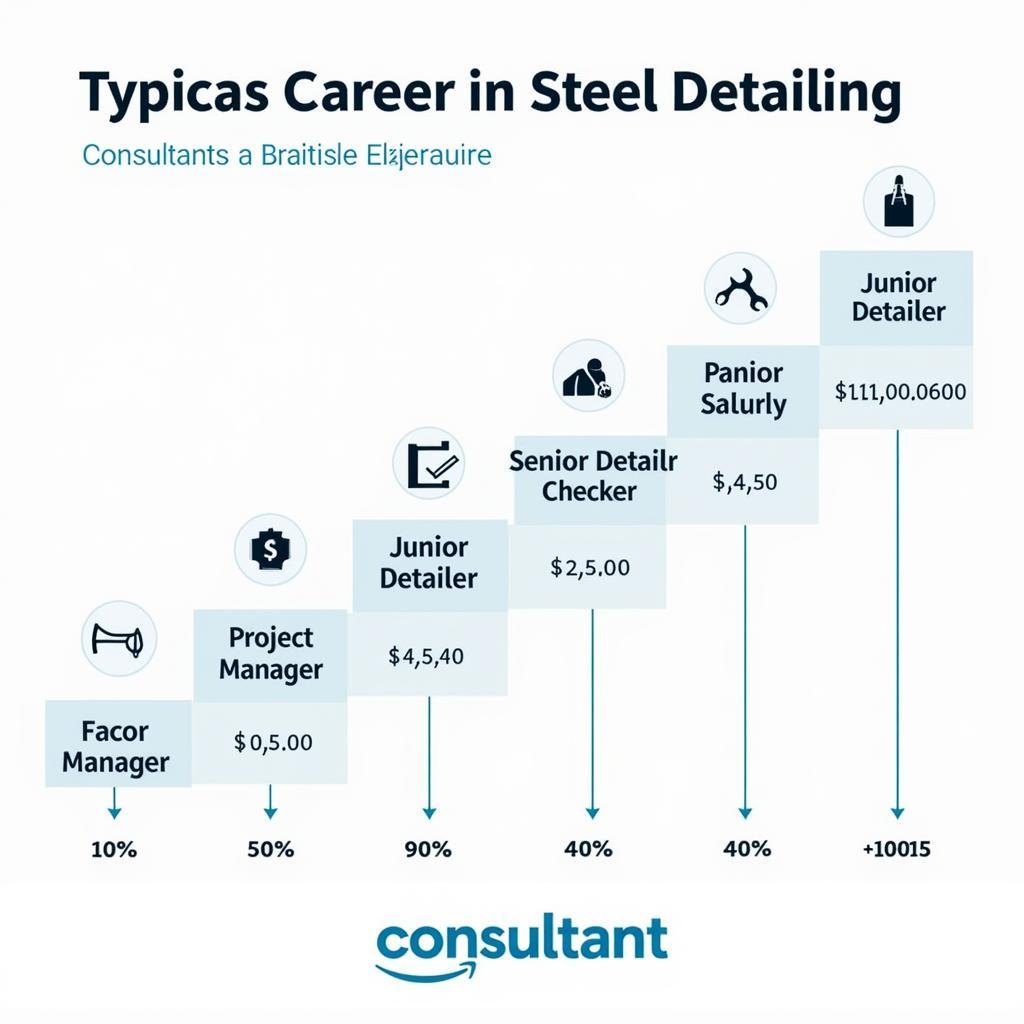Steel detailing: a career path many haven’t considered, but one that offers unique opportunities. Is it a good career for you? This article delves into the world of steel detailing, exploring its challenges, rewards, and potential for growth. We’ll examine everything from required skills and career progression to salary expectations and future prospects, helping you decide if this is the right path for you.
What is Steel Detailing?
Steel detailers are the unsung heroes of construction. They create detailed drawings that guide the fabrication and erection of steel structures. Think skyscrapers, bridges, stadiums, and even warehouses – all rely on accurate steel detailing. These drawings are essential blueprints that show every piece of steel, its dimensions, connections, and how it fits into the larger structure. Without them, construction would be chaotic and potentially dangerous.
Is Steel Detailing a Good Career in 2024?
Absolutely! The construction industry constantly needs skilled steel detailers. With increasing complexity in building design, the demand for precise and accurate detailing is higher than ever. This translates into job security and a competitive salary. Plus, as technology evolves, so does steel detailing, offering continuous learning and development opportunities.
 Steel Detailer Working on Computer
Steel Detailer Working on Computer
Skills Needed for a Successful Steel Detailing Career
A successful steel detailer needs a blend of technical and soft skills. Strong mathematical aptitude and visualization skills are crucial for interpreting blueprints and creating accurate drawings. Proficiency in CAD software is essential, as is a deep understanding of construction principles and steel fabrication processes. Equally important are communication and problem-solving skills. Detailers must effectively collaborate with engineers, architects, and fabricators.
Technical Skills
- Proficiency in CAD software (Tekla Structures, AutoCAD, SDS/2)
- Understanding of steel properties and fabrication processes
- Knowledge of industry standards and codes (AISC, AWS)
- Ability to read and interpret engineering drawings and blueprints
- Strong mathematical and analytical skills
Soft Skills
- Excellent communication and collaboration skills
- Attention to detail and accuracy
- Problem-solving and critical thinking abilities
- Time management and organizational skills
- Ability to work independently and as part of a team
Career Progression in Steel Detailing
Steel detailing offers a clear career path. You can start as a junior detailer, progress to a senior detailer, and eventually move into management roles or specialize in specific areas like connection design or 3D modeling. Some detailers even choose to become independent consultants, offering their expertise to various construction projects.
 Steel Detailing Career Progression Chart
Steel Detailing Career Progression Chart
Steel Detailing Salary Expectations
Steel detailing salaries are competitive and vary based on experience, location, and company size. Entry-level positions can expect a decent starting salary, with significant increases as you gain experience and expertise. Senior detailers and those with specialized skills can command even higher salaries.
The Future of Steel Detailing
The future of steel detailing is bright, driven by technological advancements like Building Information Modeling (BIM) and Virtual Design and Construction (VDC). These technologies are transforming the construction industry, creating more efficient and collaborative workflows, and increasing the demand for skilled detailers who can leverage these tools.
Conclusion
So, Is Steel Detailing A Good Career? With its blend of technical challenge, creative problem-solving, and growing demand, steel detailing offers a rewarding career path for those with a keen eye for detail and a passion for construction. If you’re looking for a stable, well-compensated career with opportunities for growth and development, steel detailing could be the perfect fit.
FAQ
- What qualifications do I need to become a steel detailer? While a degree in engineering or architecture is beneficial, many successful detailers have vocational training or on-the-job experience.
- How long does it take to become a proficient steel detailer? It typically takes several years of experience to become proficient, with continuous learning throughout your career.
- What software do steel detailers use? Common software includes Tekla Structures, AutoCAD, and SDS/2.
- What are the working conditions like for steel detailers? Most steel detailers work in office environments, although some site visits may be required.
- Is steel detailing a stressful job? Like any job, it can have its moments of stress, particularly when dealing with tight deadlines or complex projects.
- What are the job prospects for steel detailers? The job outlook for steel detailers is positive, with steady demand expected in the coming years.
- How can I get started in a steel detailing career? Look for entry-level positions, internships, or vocational training programs.
Need support? Contact us via WhatsApp: +1(641)206-8880, or Email: [email protected]. We have a 24/7 customer support team.

Leave a Reply